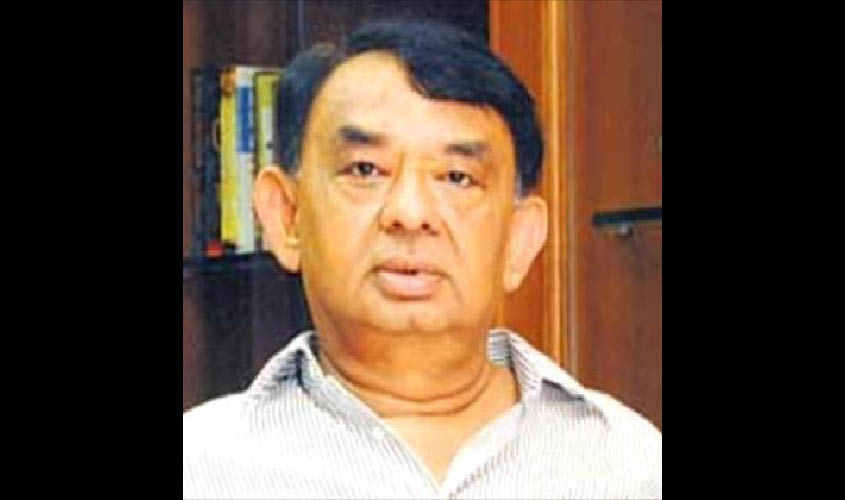Ketan Desai, who resigned from the post of president of the Medical Council of India (MCI) following alleged corruption charges eight years ago, still continues to be a member of the Dental Council of India (DCI). Desai is out on bail in the case.
While working as a president of MCI in 2010, Desai was caught red-handed by the Central Bureau of Investigation while accepting bribe from a private medical college representative allegedly in exchange of granting MCI recognition. He resigned after that, and, subsequently, his medical registration was also suspended indefinitely on account of “professional misconduct”. However, he still continues to be a member of the DCI. The CBI is investigating the case.
Speaking to The Sunday Guardian, a US-based Indian doctor, Kunal Saha, who has complained to the Union Health Ministry demanding Desai’s removal from the DCI, said it was strange that a person against whom there were serious charges of corruption, found a place in the DCI, a statutory body constituted under an Act of Parliament. Saha is the president of People for Better Treatment (PBT), a registered society.
“Desai has been in the DCI for a long time. But after the corruption charges were levelled against him as MCI president in 2010, he should not have been included as a member of the DCI. But he still continues to be its member. In 2014, Desai was recommended as Gujarat University’s representative to DCI for the fourth time in a row,” he said. Desai was elected as a member under Section 3d of the Dentists Act.
According to Saha, besides facing corruption charges, Desai’s license to practice was also under indefinite suspension. “Moreover, he is not a dentist. He is a urologist. So it is strange how he continues to be in the DCI. I have written to the Health Ministry on the issue. But nothing has been done in this regard,” he said.
He added, “I am planning to file a PIL in the Supreme Court demanding speedy action against him in the MCI case and also about his election as a member of the DCI.”
In his petition to Union Health Secretary, Saha wrote: “The Section 6 of Dentists Code of Ethics Regulation, 1976 (framed under Section 17A of Dentists Act, 1948) has categorically stated that it would be unethical for any DCI member to be linked with ‘immorally involving abuse of professional relationship’ (Section 6e) or ‘conniving at or aiding in any kind of illegal practice’ (Section 6f). There can be no argument that Dr Desai’s undisputed involvement with illegal and unethical activities, as discussed above, makes him absolutely unqualified to become a member of the DCI. Selection of Dr Desai as a member of the DCI also clearly violates ‘Dentists Code of Ethics and Regulations, 1976’ both in letter in spirit.”
DCI president Dibyendu Mazumdar and Ketan Desai did not respond when the newspaper asked them to comment on the issue. E-mail and text messages on their cellphones sent by this reporter, remained unanswered. DCI vice president Jayakar Shetty too did not reply to the communication.
In 2016, Desai became the chairman of the World Medical Association (WMA) after the Indian Medical Association (IMA) told the world body that all charges against him had been withdrawn
The main functions of the MCI, set up under the Indian Medical Council Act, 1933, are to ensure uniform standards in the field of medical education and grant recognition to medical degrees awarded in India and abroad. Medical colleges across the country require MCI’s permission to increase the number of seats, to set up new medical college, to add new courses and also to increase the students’ intake.
However, following a NITI Aayog recommendation, the government has now decided to replace the MCI with National Medical Commission, for which a Bill has been tabled in Parliament. The Bill, cleared by the Union Cabinet last year, if passed, will result in increased supply of good quality of medical professionals, both at undergraduate as well as postgraduate levels.

